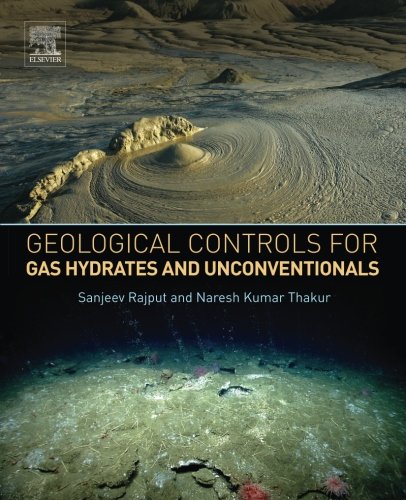

Most ebook files are in PDF format, so you can easily read them using various software such as Foxit Reader or directly on the Google Chrome browser.
Some ebook files are released by publishers in other formats such as .awz, .mobi, .epub, .fb2, etc. You may need to install specific software to read these formats on mobile/PC, such as Calibre.
Please read the tutorial at this link: https://ebookbell.com/faq
We offer FREE conversion to the popular formats you request; however, this may take some time. Therefore, right after payment, please email us, and we will try to provide the service as quickly as possible.
For some exceptional file formats or broken links (if any), please refrain from opening any disputes. Instead, email us first, and we will try to assist within a maximum of 6 hours.
EbookBell Team

4.7
16 reviewsGeological Controls for Gas Hydrate Formations and Unconventionals tells the story of unconventional hydrocarbon resources, especially gas hydrates, tight gas, shale gas, liquid- rich shale, and shale oil, to future generations. It presents the most current research in unconventionals, covering structural constituents of continental margins and their role in generating hydrocarbons. Additionally, this book answers basic questions regarding quantifications and characterizations, distributions, modes of occurrence, physical and chemical properties, and more ― in essence, all the information that is necessary to improve the models for precision prediction of the enigma of gas hydrates and other unconventionals. Blending geology, geophysics, geomechanics, petrophysics, and reservoir engineering, it explains in simple language the scientific concepts that are necessary to develop geological and reservoir models for unconventionals. Serving as a focal point for geoscientists and engineers conducting research that focuses on reservoir characteristics of unconventionals, Geological Controls for Gas Hydrate Formations and Unconventionals is a useful resource for a variety of other specialiststies including physicists, geochemists, exploration geologists, and petroleum and reservoir engineers. It details the key factors for successful exploration and development of unconventional reservoirs including discovery, data evaluation, full-field development, production, and abandonment, along with a vivid description ofn the worldwide occurrence of unconventional hydrocarbons.